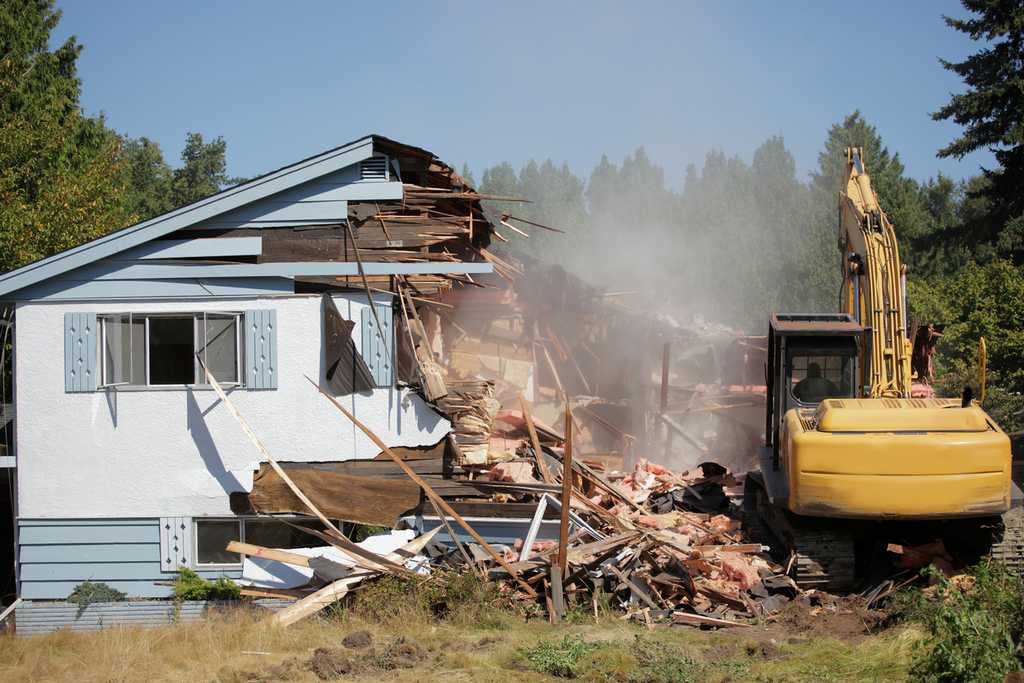When tragedy strikes, many people count on their insurance coverage to help them rebuild or replace what was lost or damaged. What is missing from that equation is the impact of the loss of use of your home, car, or workplace. In some situations, the financial damages due to the loss of use of your property can be much higher than the actual damage to the property.
Loss of Use is a standard feature of homeowners insurance policies. It is also commonly known as "additional living expenses (ALE)" coverage or Coverage D, it pays for the expenses you have when you cannot live in your home temporarily while it is being repaired or rebuilt. If your home is damaged by fire, theft, or vandalism.
What does Loss of Use Coverage cover?
In the insurance world, Loss of Use coverage focuses on the additional living expenses you incur when you cannot live in your home due to a covered event. For businesses, this coverage is known as Business Interruption Insurance.
Loss of Use coverage pays for the expenses you have when you cannot live in your home temporarily while it is being repaired or rebuilt. If your home is damaged by fire, theft, or vandalism, you should be protected.
However, your home insurance must cover the "peril" that caused the damage. If the damage was caused by a flood or earthquake, you must have that specific insurance coverage, otherwise, you cannot claim the Loss of Use of your home.
What expenses are typically covered by Loss of Use?
When you cannot live in your home, there are many expenses that you may incur while it is being repaired or rebuilt. These expenses often go beyond just paying for another place for you to sleep at night. A sample of the covered expenses due to Loss of Use include:
- Cost of temporary housing
- Additional fuel, mileage, or commuting expenses
- Boarding your pet
- Clothing expenses
- Storage unit bills
- Parking costs
- Additional food expenses
- Replacing lost rental income (if you were renting all or part of your home before the covered loss)
However, your insurance coverage will not reimburse you for expenses that are not being incurred while you are not living in your home. These expenses include common utilities like water, sewer, electricity, and gas.
While your home is being repaired, you are still responsible for your normal expenses. You must continue to pay your mortgage, insurance, property taxes, homeowners association (HOA), and other regular expenses.
For food expenses, Loss of Use typically reimburses only the additional amount that you are spending due to the claim. If you are staying at a hotel and cannot make your meals, you can claim the difference between your normal grocery bill and reasonable dining expenses. You cannot eat a steak and lobster dinner every night and expect the insurance company to foot the bill.
How does Loss of Use insurance work?
When you have a claim for Loss of Use, the first step is to contact your agent or insurance company. Many insurance companies allow you to start the claims process online or through their mobile app so you don't have to wait to speak to someone on the phone. However, it is a good idea to speak with your agent or customer service to better understand the details of your coverage.
To make submitting your claim easier, save all related receipts and create a ledger detailing your expenses. Write down the date, amount, vendor, and reason for every expense to thoroughly document your claim. Some people use a spreadsheet like Microsoft Excel or Google Docs to ensure that the list does not get lost. Scanning your receipts is also a good idea since you are in temporary housing and could easily lose them.
To get a baseline of your expenses, the insurance company will ask you to detail your "normal living expenses." Because Loss of Use coverage only pays additional expenses incurred due to the claim, you'll only receive amounts in excess of what you fill out on the worksheet. For example, if your normal living expenses are $1,500 a month and you spend $2,500 a month while living away from your home, you'll receive a check for $1,000.
Many insurance companies reimburse on a monthly basis so that you're not out of the money for too long. If you are having financial difficulties, ask for an upfront payment or more frequent reimbursements.
To claim Loss of Use for your rental property, the process is more complicated. You may be required to provide a copy of the lease, bank statements verifying the rental payments, and other related forms before the insurance company will approve payments.
How much Loss of Use coverage do I need?
Loss of Use coverage is typically calculated as a percentage of your dwelling coverage limit. Many insurance policies offer coverage in the range of 20% to 30% of this amount. Depending on your insurer, you may have to request Loss of Use coverage if your home is a rental.
The amount of Loss of Use coverage you need varies based on a variety of factors. These factors include:
- Local rental or hotel costs: If you needed to live somewhere else for an extended period of time, how much would that cost?
- Expenses that may be needed: Based on your personal circumstances, add up the expenses you'll need to pay if you could not live in your home.
- Emergency fund balance: People that have more savings can afford to increase deductibles and have lower coverage limits. Their savings allows them to "self insure" part of their risk in case of a claim.
- Your monthly budget: While it would be ideal to have maximum coverage, most people's budgets require tradeoffs to ensure that insurance is affordable.
Many people recommend erring on the side of having more coverage than less. Construction often takes longer than expected, especially if many people in your area also need their homes to be rebuilt. You also may not be able to access your home after an incident. This may make you incur one-time expenses for clothing, toiletries, and other necessary items. Plus, unexpected expenses may pop up that you hadn't thought about before.
Frequently Asked Questions (FAQ)
Is Loss of Use covered by homeowners insurance?
Loss of Use is a standard feature of homeowners insurance policies. It is also commonly known as "additional living expenses (ALE)" coverage. You can find details of your coverage in Schedule D of your policy.
What does Loss of Use coverage on renters insure?
When you are renting out your home and the tenants cannot live there due to a covered event, this coverage will reimburse you for the market rate of your rental. The tenants will need to make a claim through their own renters insurance policy for their Loss of Use expenses.
Is there a deductible for Loss of Use?
Whether or not you have to pay a deductible depends on your insurance company and the policy that you have. As with most insurance coverages, you can choose from a variety of deductible options when pricing out your policy. Your deductible may be waived if the Loss of Use is part of a larger dwelling or personal property claim. However, you still must pay the deductible for the repairs to your home.
How long does Loss of Use coverage last?
The timeframe for Loss of Use coverage varies by state and by the insurer. It is best to check with your insurance company to verify the rules that apply to your policy. There are also financial limits to your Loss of Use claim. While your time limit may be long, the financial limits of your claim are based on your coverage decisions. Your actual expenses compared to your coverage limits may dictate how long your Loss of Use benefits last. It pays to understand your coverage and act accordingly when choosing where to live and how much to spend on other expenses while your home is being repaired. You don't want to run out of insurance money halfway through the project.

